According to the Ministry of Public Security , entering the 2025 summer tourist season, taking advantage of the increasing demand for air tickets, travel combos, tourist areas, hotels, resorts, etc. of people, scammers have impersonated travel agencies, tourist areas, resorts, etc. to post information about accepting tour bookings and hotel reservations in order to appropriate people's property.
Impersonate big brands to create trust
The Ministry of Public Security said that the methods and tricks of the subjects are: Hiring Facebook blue tick services or buying Facebook accounts with blue ticks from before, changing their names to tourist areas, hotels, resorts or reputable travel businesses to create trust for people, running advertisements and posting information on accepting reservations for airline tickets, hotel rooms... The subjects provide information on attractive tourism programs, a large number of ticket and room funds with prices similar to those of official establishments to avoid suspicion from people. Many Facebook pages post all the official information of real establishments. Asking people to transfer 50% in advance as a deposit, then providing fake booking codes and asking victims to pay the full amount in advance.
Image of fake page, impersonating Dream Dragon Resort.
Ms. TNH (HCMC) saw a Facebook account with a blue tick posting a promotion for a 3-day, 2-night tour to Phu Quoc for only 3.9 million VND/person, guaranteeing a 4-star hotel and round-trip airfare. Trusting the account because it had a blue tick and posted many photos of “checking in as a group”, Ms. H quickly transferred a deposit of 12 million VND to 3 people in her family. However, after transferring the money, the fanpage immediately blocked her account. The contact phone number is also no longer active.
Mr. LMT ( Hanoi ) follows a blue-tick fanpage claiming to be the director of a famous travel company, regularly livestreaming to introduce vacation combos in Da Lat, Nha Trang, Sapa. When he saw the fanpage advertising a 2N1D Da Lat combo for only 1.6 million VND/person (including shuttle bus and 3-star hotel), Mr. T transferred 4.8 million VND to book a place for the whole group of friends. On the day of departure, he was shocked to discover that the entire fanpage, phone number and Zalo had disappeared.
According to Mr. Vu Ngoc Son, Head of Technology Department, National Cyber Security Association, the common point in tour booking scams is that bad guys take advantage of users' psychology of wanting discounts.
"The subjects do not need to use complex attack techniques, but only need to play on psychology: everyone wants cheap tickets, nice hotel rooms, good service during peak season. From there, they create attractive scenarios using fake fanpages and websites, making users voluntarily fall into the trap," Mr. Son analyzed.
In fact, many people who have traveled many times and have experience are still fooled by unbelievable promotional packages.
"Even pages with blue ticks, signs of authenticity, can be fake. Because the subject can buy a real blue tick fanpage, then change the name to the name of a tourism business. This is a loophole in social network management that users rarely notice," Mr. Son warned.
Be alert and check the origin of your account.
Faced with the above situation, the Ministry of Public Security warns people to carefully check information on social media accounts that sell or advertise travel combos, hotel rooms, resorts, etc.
Check information posted from various sources: Facebook, Tiktok, official websites of businesses, accommodation facilities... as well as the transparency of social media accounts.
One thing that is easy to notice is that most of the fake accounts are newly created or have just been renamed and posted advertisements in a short time. People can easily check this information and should not transact with accounts that show the above signs.
After making a deposit, you need to check the specific information about your booking code. Contact the official phone number of the airline, accommodation, resort, etc. to check your code, check the reputation of the ticket and booking agent before paying the full amount.
Report to the nearest police station if you have been scammed and had your property stolen online.
The Department of Information Security (Ministry of Information and Communications) recommends that people need to be vigilant and cautious against fake Fanpages with information about hotels and tourist accommodations.
Conduct a thorough check and verification of information about the location, facilities of the accommodation as well as the background of the supplier. Absolutely do not transfer a deposit without verifying the reputation of the subject.
People are advised to carefully check the origin of the account and the authenticity of the subject before receiving any information. In case of becoming a victim of a scam, people need to immediately report to the police for timely support and resolution.
Mr. Vu Ngoc Son, Head of Technology Department (National Cyber Security Association) warned: “Online fraud attacks will continue to rage in 2025. In addition to measures from management agencies, users still need to raise their vigilance and safety skills when participating in cyberspace. Do not share personal information with strangers or untrusted services. Carefully verify any calls or exchanges related to money transfers. Use the nTrust anti-fraud application to filter and block fraudulent phone numbers and malicious websites.”
nTrust is a completely free application for smartphones that helps detect signs of fraud by checking phone numbers, account numbers, website links and QR codes.
Talking to reporters of the Knowledge and Life Newspaper about this issue, lawyer Nguyen Ngoc Hung - Head of the Ket Noi Law Office (Hanoi Bar Association) said that the trick of taking advantage of blue-tick Facebook accounts to scam users is a serious violation of the law and can be criminally prosecuted according to current regulations. Blue-tick Facebook accounts are often considered to be official accounts, with higher reliability, so taking advantage of this feature to scam will cause many consequences for users and society.
According to Article 174 of the 2015 Penal Code (amended and supplemented in 2017), the act of fraud to appropriate property is defined as the use of deceitful means to appropriate another person's property. Taking advantage of a blue-tick Facebook account to impersonate or defraud others for the purpose of appropriating property can be considered fraud. If the value of the property appropriated is from VND 2,000,000 to less than VND 50,000,000, the offender may be subject to non-custodial reform for up to 3 years or imprisonment from 6 months to 3 years. If the value of the property appropriated is greater, the penalty will increase, possibly up to 20 years in prison or life imprisonment in cases of appropriating property worth VND 500,000,000 or more. In addition, according to Article 341 of the 2015 Penal Code, the act of forging seals and documents of agencies and organizations can also be applied if the fraudster uses forged documents to commit fraud. This act can be criminally prosecuted with a prison sentence of up to 7 years.
Lawyer Nguyen Ngoc Hung - Head of Ket Noi Law Office (Hanoi Bar Association).
Accordingly, those who use blue-tick accounts to commit fraud will face severe penalties. Offenders will not only be held criminally liable but may also have to compensate the victim for damages. In addition, those who commit fraud via social networks may also be subject to administrative sanctions under Decree No. 15/2020/ND-CP on administrative sanctions for violations in the field of cyber security for other violations.
To check the reliability of a Facebook page, users can view information about the transparency of this Facebook page. To do this, you access the Facebook page you want to check information about, click on "About". In the interface that appears, you click on "Page transparency" and click the "See all" button.
In the dialog box that appears, you will see detailed information about the Facebook page, including the date the page was created, any name changes, and a list of the Facebook page's administrators.
If a Facebook page is newly created or frequently changes its name, with unrelated names, it is likely a scam.
This is because hackers can attack and take over a Facebook page with a large number of followers, then change the page name and add a blue tick to commit fraud. In addition, based on the administrator information of the Facebook page, you can also guess whether it is a fake page or not.
If a Facebook page that usually provides information about Vietnam or is named after a famous person in Vietnam, but has a list of administrators abroad, it is almost certain that this will also be a fake Facebook page that tricks users into accessing websites containing malicious code.
One thing users need to check carefully is the number of interactions with posts on Facebook pages. Many people are often subjective when they see posts introducing products, offering services... with high interactions or many comments praising, responding... so they trust the content of the post.
However, fake Facebook pages often use tools to artificially increase engagement, including the number of people clicking "Like" or commenting on posts.
To check if the interactions on your Facebook page are fake or not, open the list of accounts that have interacted with your posts and access the personal pages of these accounts. You can easily see that most of the interactive accounts are fake, newly created or barely active on Facebook.
Nghe An Provincial Police Electronic Information Portal
Source: https://khoahocdoisong.vn/mat-tien-oan-vi-tin-vao-facebook-tich-xanh-rao-ban-tour-du-lich-post1553115.html


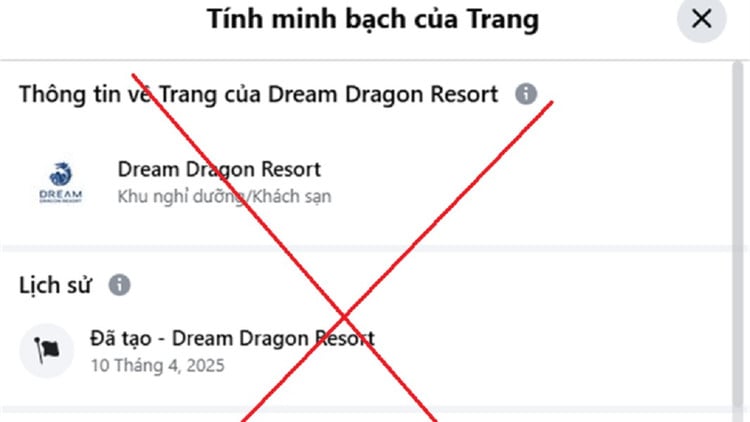
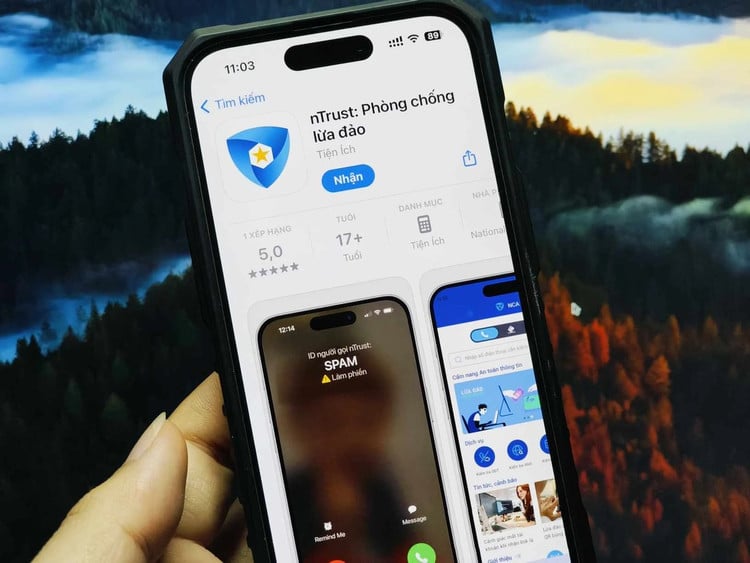


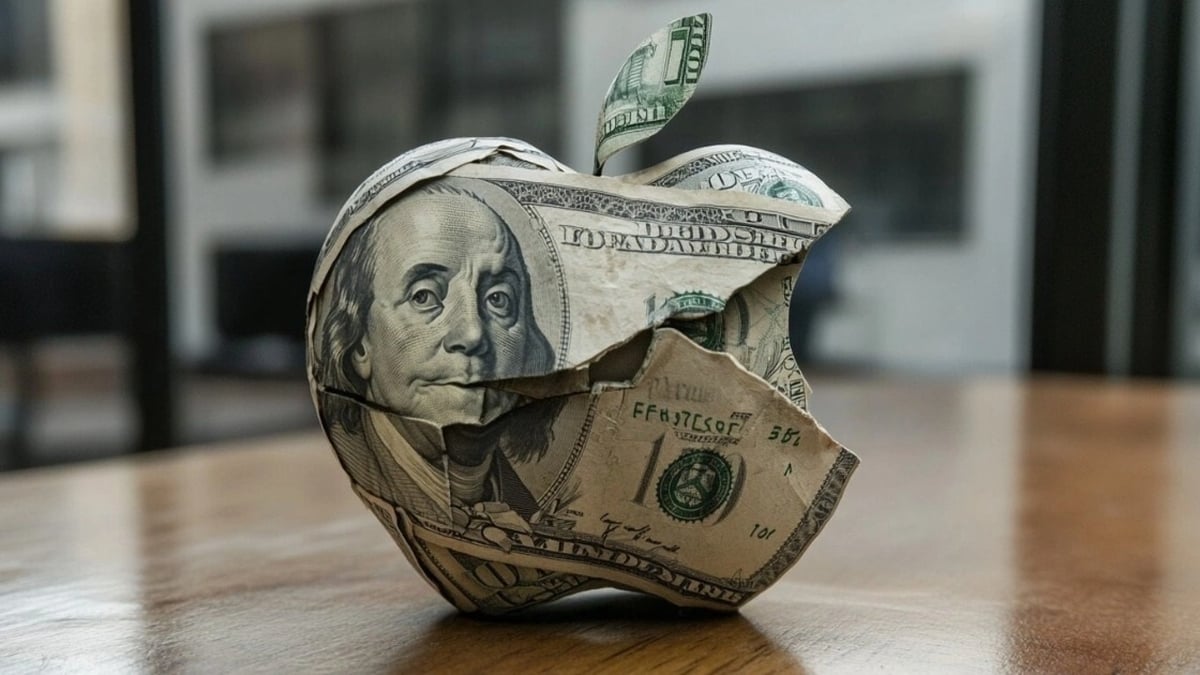






















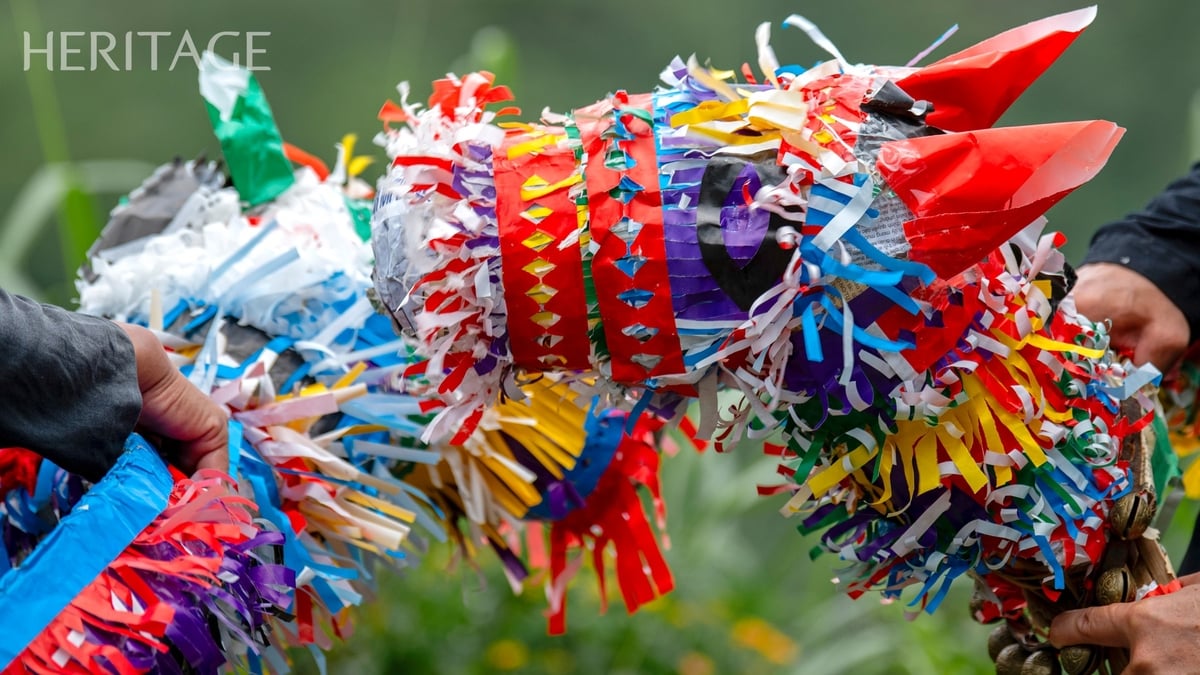















































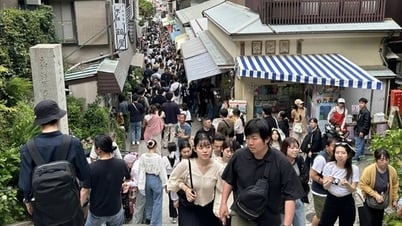




















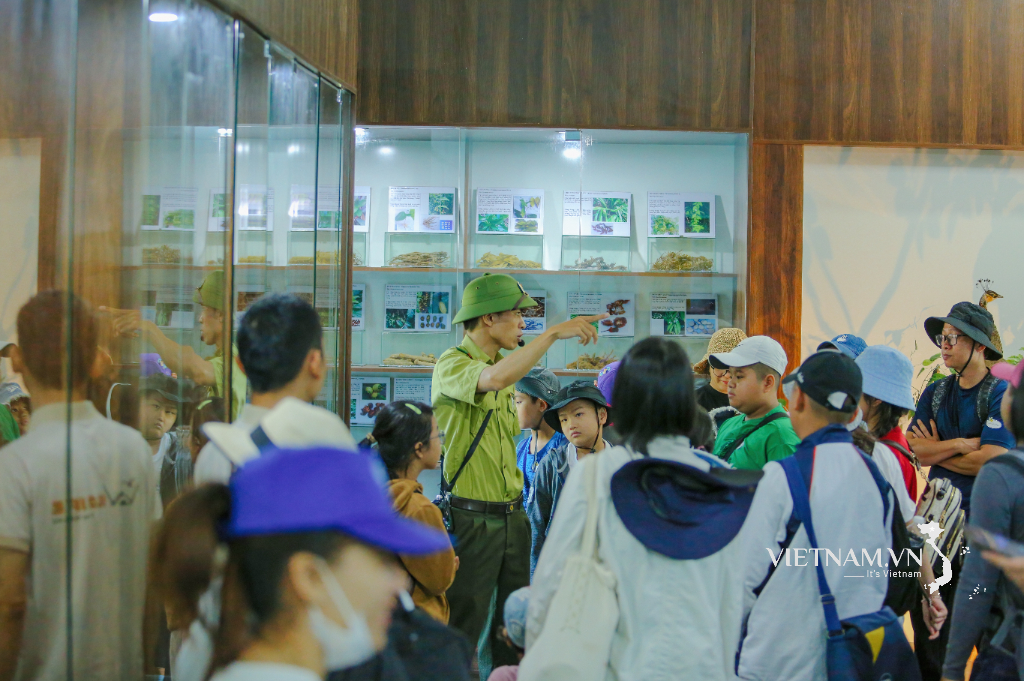


Comment (0)